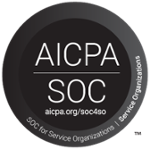In the realm of business management and operations, Business Processes and Workflow are terms that are often used interchangeably, but they represent different aspects of organizational systems. Gaining a clearer understanding of the key differences between the two can help businesses optimize their operations, improve collaboration, and achieve better results.
In this blog post, we will explore the fundamentals of business processes and workflows, emphasizing their unique characteristics, how they interact, and their significance in organizational success.
Defining Business Processes
A Business Process or Standard Operating Procedure (SOP) is a series of tasks or activities that an organization performs to achieve a specific objective or produce a particular output. These processes are designed to add value by transforming inputs (resources, information, etc.) into outputs (products, services, etc.). Business processes can be simple or complex, depending on the nature of the organization and its goals. They represent the documented design source that outlines the optimal way of performing tasks to achieve desired results. Examples of business processes include procurement, product development, customer service, and employee onboarding.
Understanding Workflows
On the other hand, workflows are the means by which business processes are embedded into systems. They provide a structured approach to implementing the tasks and activities outlined in the business processes, focusing on the order in which tasks must be completed and the roles, responsibilities, and rules governing those tasks. Workflows essentially translate the design source of business processes into practical, executable sequences within an organization's systems. They may involve automated, manual, or a combination of both. Technology such as workflow management software, business process management systems, or other automation tools often supports them.
Benefits of Clearly Defined Business Processes and Workflows
Business processes and workflows are critical to an organization's success. Business processes provide the blueprint for efficient and effective operations, while workflows ensure that these processes are executed consistently and accurately within the organization's systems.
-
Improved efficiency: In short, business running at its best.
-
Consistent execution: A clear process will ensure it is operated upon consistently, across multiple departments.
-
Ease of implementation: A workflow that is clearly defined and backed up by a solid process, will integrate much more smoothly across the business.
-
Better collaboration: Whether collaboration within a team, or across departments, having all referring to a similar overhead process or workflow, will ensure collaboration can happen more efficiently.
-
Documentation: A documented process can be easily shared and followed amongst new and existing areas of business.
Leveraging Emerging Technology
As organizations increasingly adopt digital technologies, the importance of effectively integrating business processes and workflows into systems has become even more critical. By leveraging technology such as business process management software, workflow automation tools, and artificial intelligence, organizations can streamline their processes, reduce manual labour, minimize errors, and enhance overall efficiency.
Conclusion
In conclusion, understanding the fundamentals of business processes and workflows and their differences is essential for organizations looking to optimize their operations and achieve better results. Businesses can create a more seamless, efficient, and effective operational environment by viewing business processes as the documented design source and workflows as the means of embedding processes into systems.
With the right approach and the strategic use of technology, organizations can drive continuous improvement, enhance collaboration, and propel their businesses forward.

AN INTRODUCTORY GUIDE TO INBOUND MARKETING
Get to grips with marketing in the digital age
Lorem ipsum dolor sit amet, consectetur adipiscing elit. Suspendisse varius enim in eros elementum tristique. Duis cursus, mi quis viverra ornare, eros dolor interdum nulla, ut commodo diam libero vitae erat.
Download Guide